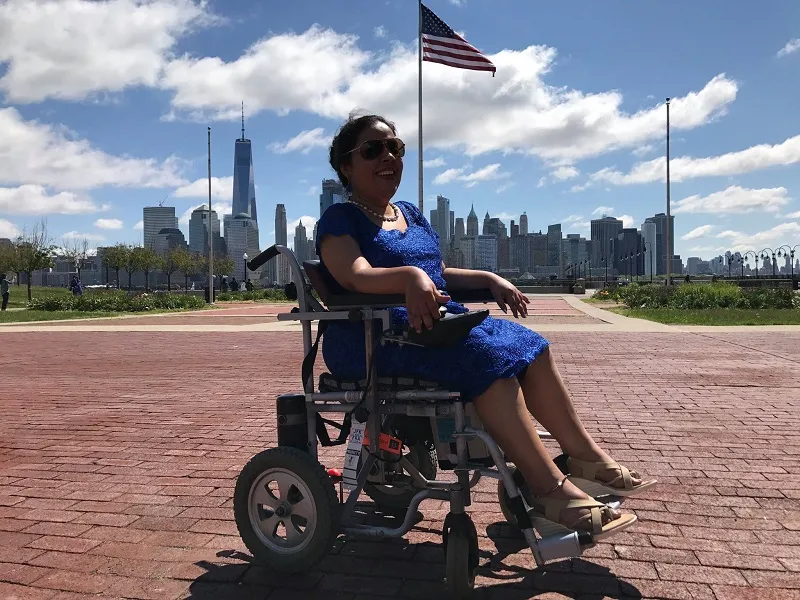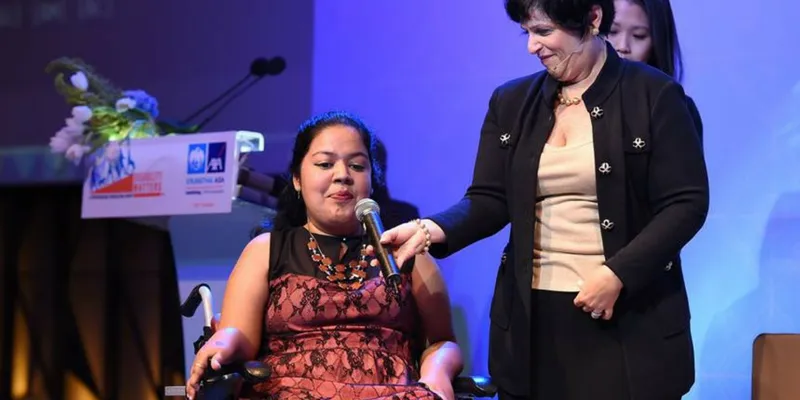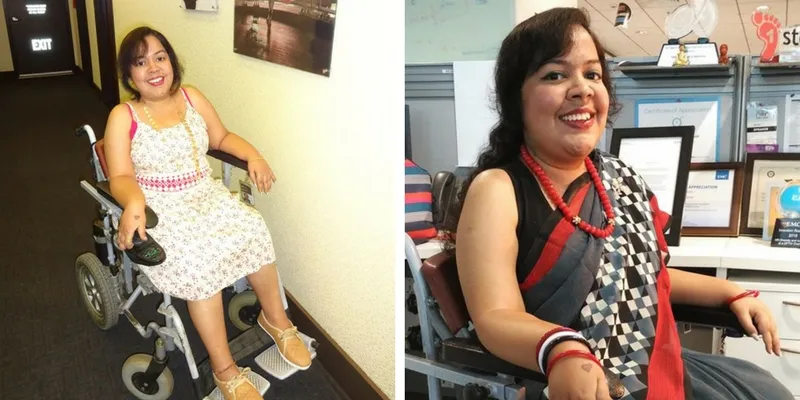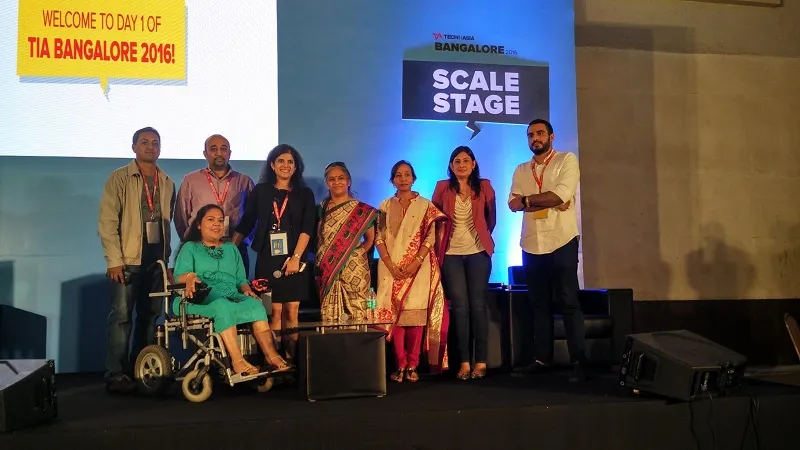Making workplaces more inclusive: Deepa Narasimhan champions the cause of the differently-abled
A well-known crusader for rights of the disabled and inclusion leader, Deepa Narashiman is empowering the differently-abled working in the corporate world.

A confident and chirpy Deepa Narasimhan greets me with a wide smile on the fourth floor lobby of a major MNC. Operating her electric wheelchair, she guides me towards a conference room even as we are busy exchanging pleasantries. Her energy and enthusiasm towards life, I observe, is infectious.
Difficult teenage years
As a toddler, Deepa was diagnosed with a condition called spinal muscular atrophy (SMA). Her condition only deteriorated as she grew up. Though she was raised in a traditional joint family of 18 members who never discriminated against her disability, she had to drop out of school as a teenager due to lack of inclusive infrastructure. This was followed by a prolonged phase of 15 years where an inquisitive Deepa (who was also tetraplegic) was restricted from seeing the outside world.
“The teenage years were specifically difficult as I hated myself. My neuro-muscular activities became increasingly limited as I could not even write. The turning point came when I started accepting my condition and what it did to me,” says Deepa.

Being introduced to the world of computers and technology also boosted Deepa’s spirits. She adds, “It gave me wings to explore and learn.”
Despite exceptional credentials, Deepa was denied employment opportunities because prospective employers could not promise a disable- friendly workplace for her. “That’s when I started freelancing for Enable India. I built their website and was also paid well. But the challenge was to get out of the four walls,” Deepa says, recalling the depressive phase of job-hunting.
In just one year of my corporate life, I had fulfilled all my dreams
The major break-through came in the form of a job offer from EMC, a multinational software company which hired her as part of its marketing and communications team in 2008. “In just a year of my corporate work life, I had fulfilled all my dreams of socialising, shopping, partying, etc…,” quips Deepa, who has pioneered many innovations to help the differently-abled communities working in the corporate sector, for almost a decade now.
Having successfully ventured out and making it to the actual workplace, Deepa worked towards creating a platform within her organisation to enable others from the community to pursue diverse options.
“Our efforts started in 2012 when we began sensitising managers and leaders in the software space about inclusion and disability. We got celebrities who had battled disabilities to make it big in their respective careers, to present motivational speeches,” shares Deepa, who also contributed towards starting a ‘Profound Disability Internship Programme’, the first-of-its kind in the corporate sector.

“The efforts started bearing fruits when our managers understood that people with disabilities can also deliver equally well on job expectations, if provided with assistive technologies. Though changing mindsets was difficult initially, we now have more than 100 differently-abled people on board at DellEMC,” Deepa shares proudly.
Our conversation is briefly interrupted by a hearing-impaired employee who drops by to collect his laptop from the conference room. I then ask Deepa about the nuances of making a workspace more inclusive.
She says: “People often believe that inclusion is all about providing ramps. It is much more than that. It’s about making sure whether proper investments are made to provide the differently-abled with assistive technologies. You cannot employ a visually impaired person without giving him/her access to screen reading software. Even steps like ensuring elevators have voice control systems matter,” says Deepa stressing the importance of all buildings adhering to accessibility guidelines.
A disability bill will not solve anything
Currently, Deepa Narasimhan heads Diversity and Inclusion at DellEMC, India and constantly strives to ensure an equitable workplace. Also, a well-known champion for the rights of the differently-abled, Deepa advocates for all public spaces to be easily accessible.
“India has a long way to go in terms of catering to the basic needs of the differently-abled. Our governments are forever lagging behind in ensuring accessibility checks. Just bringing a disability Bill into force will not solve anything. We need to have in place a stand-alone force that implements all the hard measures,” stresses Deepa, also citing Japan as an example to learn from in terms of accessibility.
“In Japan, car parking, pavements, sky decks and even metros are completely accessible. India needs to adopt such models,” she adds.

Deepa’s role is not just limited to advocating for accessibility and inclusion of disabled communities. She is also instrumental for launching True Ability in 2012, a network that stresses on the importance of an equitable workplace.
“I mentor a lot of differently-abled employees in my company and try and understand their pain and challenges. I’m also grateful to be able to create a safe working environment for them. Our staff also draws a lot of inspiration from the differently-abled employees. Because of the inclusive environment, we also attract the best talent” she says.
People need to become more accepting
Deepa is an avid traveller and contributes her insights to many creative, empowering projects that help the differently-abled in rural India.
This has enabled Deepa to think beyond India when it comes to Inclusion, where she is recognised as a thought-leader and change maker. She has also explored and spoken on topics like ‘dating and disability’ that are seldom addressed in the public domain.
Speaking of the level of awareness with regard to inclusion in India, she says, “The new generation is definitely more aware and empathetic. However, mere awareness will not suffice. People should become more accepting of others.”

“Technologically, we are in a brilliant phase in history. There are opportunities for everyone but we need to utilise technology more efficiently to impact huge masses and ensure such efforts trickle down to the grassroots level,” she adds.
Deepa’s cheerful personality and professional accomplishments are a testament to the fact that no obstacle or disability is limiting and unconquerable, if one has the grit to overcome it. Even as she excels in her empowering efforts and works towards an inclusive society, she reiterates, “I’m positive about this generation in bringing about a change”.







